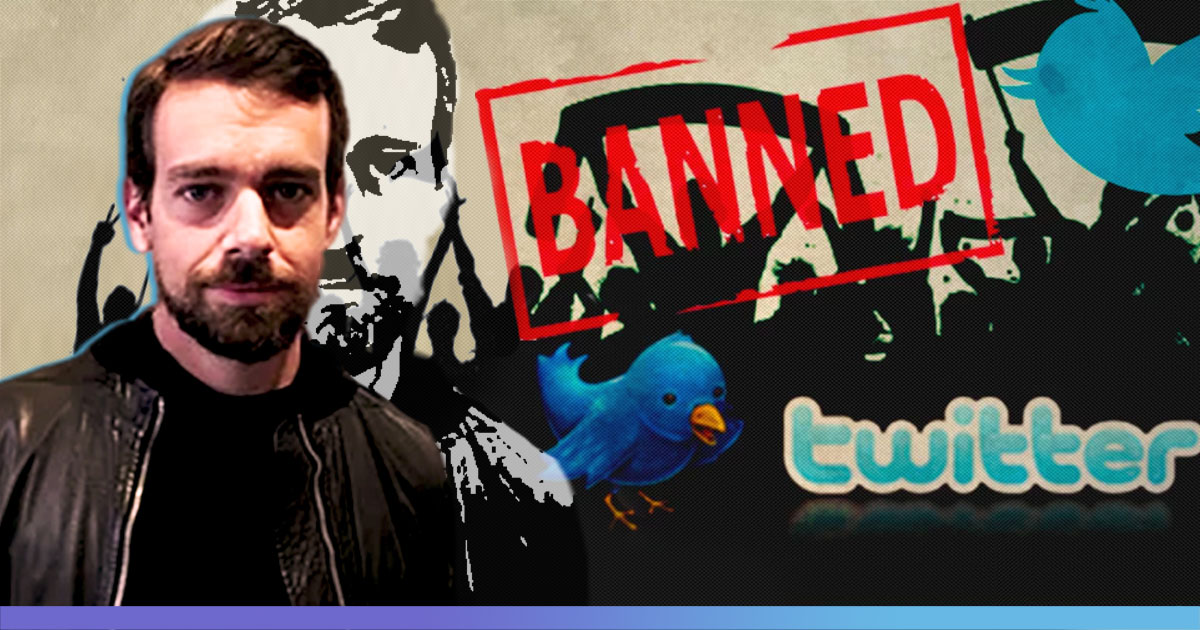Twitter has announced a ban on all political advertising from its platform, saying that social media companies give advertisers an unfair advantage in spreading misleading messages. Twitter CEO Jack Dorsey tweeted the change.
We’ve made the decision to stop all political advertising on Twitter globally. We believe political message reach should be earned, not bought. Why? A few reasons…🧵
— jack (@jack) October 30, 2019
Twitter Decision To Ban Political Ads
The policy to ban political ads will be enforced from November 22 and complete details regarding the policy will be known by November 15. The policy will permit some exceptions, including advertisements in support of voter registration.
“We believe political message reach should be earned, not bought,” said Dorsey, on his personal Twitter account.
The decision fetched a quick response from the Trump campaign, which said in a statement that the ban was a “very dumb decision.”
“While internet advertising is incredibly powerful and very effective for commercial advertisers, that power brings significant risks to politics, where it can be used to influence votes to affect the lives of millions,” he added.
“Internet political ads present entirely new challenges to civic discourse: machine learning-based optimisation of messaging and micro-targeting, unchecked misleading information, and deep fakes,” said Dorsey. “All at increasing velocity, sophistication, and overwhelming scale.”
Eric Ham, a political analyst and author of The GOP Civil War has claimed that the move would have ramifications across the world. “This is huge,” Ham said. “Not only for the business and social media communities but more importantly for the political landscape in the US and across the globe. We are talking about a major vehicle for getting out one’s message now being closed off completely.”
Increasing Pressure On Facebook?
Eric Ham claimed that Twitter’s move was likely to increase pressure on Facebook, which has already been under fire in the US and UK over the misuse of millions of users’ data in political campaigns to create targeted advertising.
On Wednesday, the social media firm, Facebook, agreed to pay a fine of 500,000 British pounds ($643,000) to the UK regulator for its role in the Cambridge Analytica scandal, which was linked to the 2016 Brexit referendum. The now-defunct company had also worked on political campaigns in other countries around the world.
In October, Facebook said that it would not fact-check ads by politicians or their campaigns, which could allow them to lie or manipulate freely.
CEO Mark Zuckerberg told Congress last week that politicians have the right to free speech on Facebook, angering those who support stronger controls on what politicians can say online. Less than 0.5% of Facebook’s revenue in 2020 will come from political ads, Zuckerberg said.
We just shared our community update and quarterly results. Here’s what I said on our earnings call. — Before we…
Mark Zuckerberg ಅವರಿಂದ ಈ ದಿನದಂದು ಪೋಸ್ಟ್ ಮಾಡಲಾಗಿದೆ ಬುಧವಾರ, ಅಕ್ಟೋಬರ್ 30, 2019
Facebook Employees Raise Concerns
Disappointed over the recent remarks made by Zuckerberg, more than 250 Facebook employees in a petition to CEO, Mark Zuckerberg have requested to alter the company’s policy on political advertising which allows politicians to post false ads on the platform.
The letter accessed by the New York Times reporter read, “Free speech and paid speech are not the same things. Misinformation affects all of us. Our current policies on fact-checking people in political office, or those running for office, are a threat to what FB stands for. We strongly object to this policy as it stands. It doesn’t protect voices, but instead allows politicians to weaponize our platform by targeting people who believe that content posted by political figures is trustworthy.”
The letter came into light after the latest move by Facebook to give liberty to the politicians to frame advertisements without fact-checking, relinquishing the previous rule of banning falsehoods in political ads.
Earlier this week, Alexandria Ocasio, Congresswoman, in a heated argument with CEO Zuckerberg asked him why the social media giant has not initiated any action against fake political ads even when it is against the spirit of free and fair elections.
Facebook CEO Mark Zuckerberg testified before Congress this week the company’s cryptocurrency. But in one exchange, Rep. Alexandria Ocasio Cortez asked when he first became aware of Cambridge Analytica and about lies in political advertising on Facebook: https://t.co/oqIJxksFQS pic.twitter.com/zJqpiXxNNM
— WIRED (@WIRED) October 26, 2019
This issue was also highlighted back in September when Twitter, along with Facebook and Google, refused to take off a misleading video advertisement from US President Donald Trump’s campaign that targeted former Vice President Joe Biden, a leading Democratic presidential candidate.
In response, Democratic Senator Elizabeth Warren, another presidential hopeful, ran an advertisement on Facebook taking a dig at CEO Mark Zuckerberg. The ad falsely claimed that Zuckerberg endorsed Trump for re-election.
Dorsey has urged for a ban all political ads on Facebook and stricter laws to govern social media.
“We need more forward-looking political ad regulation (very difficult to do). Ad transparency requirements progress, but not enough,” he tweeted. “The internet provides entirely new capabilities, and regulators need to think past the present day to ensure a level playing field.”











